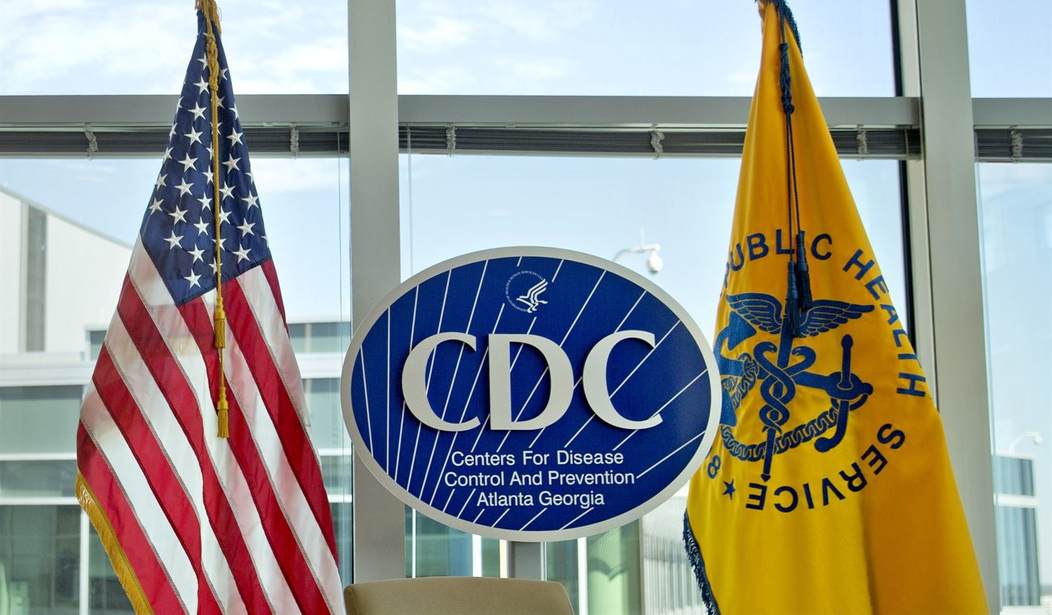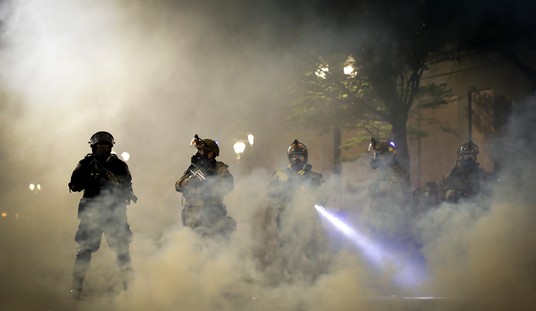A federal judge (a Trump judge, if you are keeping score, even though Chief Justice John Robers tells us that there is no such thing as Trump or Obama judges) has issued a nationwide injunction against the enforcement of a ban on evictions that was imposed, allegedly, as a means to contain the spread of the Wuhan virus.
The CDC, citing public health grounds, had implemented the temporary halt on evictions, extending protections for millions of tenants who have fallen behind on their rent during the pandemic. But a series of conflicting lower court rulings has called into question the legality of the moratorium, creating uncertainty for landlords and tenants alike.
Wednesday’s ruling from Judge Dabney Friedrich, from the U.S. District Court for the District of Columbia, is the first to set aside the moratorium on a nationwide basis. The Justice Department had requested that any ruling only apply narrowly to the housing providers and Realtors associations who brought the case.
Judge Friedrich, a Trump appointee, said that while it was the role of the political branches of government to address the pandemic, current federal law on public health didn’t give the CDC broad authority to impose the moratorium.
When the first whiff of the China virus hit the United States, the first reaction reminded me of the old Army tradition of dealing with an emergency:
When in danger, When in doubt;
Run in circles, scream and shout.
Eventually, and this is my view, the panic created a politically painful environment for elected officials where any action, taken or not, became a pressure point. As a result, you have seen legislatures and Congress defer to the public health bureaucracy and delegate previously unimagined power to those crypto-fascists for no greater reason than making the pain stop. As a result, the US economy was essentially shuttered for several months, and all manner of facially un-constitutional measures imposed upon a supine and bovine citizenry under the guise of saving us all from the bogeyman of the China virus. This is how the moratorium on eviction came to be taken from the decision by Judge Friedrich.
On March 13, 2020, then-President Trump declared COVID-19 a national emergency. See generally Declaring a National Emergency Concerning the Novel Coronavirus Disease (COVID-19) Outbreak, Proclamation 9994, 85 Fed. Reg. 15,337 (Mar. 13, 2020). Two weeks later, he signed the CARES Act into law. See Pub. L. No. 116-136, 134 Stat. 281 (2020). The CARES Act included a 120-day eviction moratorium with respect to rental properties that participated in federal assistance programs or were subject to federally-backed loans. See id. §4024. In addition, some—but not all—states adopted their own temporary eviction moratoria. Administrative Record (“AR”) at 966–72, 986–1024, Dkt. 40. The CARES Act’s federal eviction moratorium expired in July 2020.
On August 8, 2020, then-President Trump issued an executive order directing the Secretary of HHS (“the Secretary”) and the Director of the CDC to “consider whether any measures temporarily halting residential evictions of any tenants for failure to pay rent are reasonably necessary to prevent the further spread of COVID-19 from one State or possession into any other State or possession.” Fighting the Spread of COVID-19 by Providing Assistance to Renters and Homeowners, Executive Order 13,945, 85 Fed. Reg. 49,935, 49,936 (Aug. 8, 2020).
Weeks later, on September 4, 2020, the CDC issued the “Temporary Halt in Residential Evictions To Prevent the Further Spread of COVID-19” (“CDC Order”), pursuant to § 361 of the Public Health Service Act, 42 U.S.C. § 264(a), and 42 C.F.R. § 70.2. 85 Fed. Reg. 55,292 (Sept. 4, 2020). In this order, the CDC determined that a temporary halt on residential evictions was “a reasonably necessary measure . . . to prevent the further spread of COVID-19.” 85 Fed. Reg. at 55,296. As the CDC explained, the eviction moratorium facilitates self-isolation for individuals infected with COVID-19 or who are at a higher-risk of severe illness from COVID-19 given their underlying medical conditions. Id. at 55,294. It also enhances state and local officials’ ability to implement stay-at-home orders and other social distancing measures, reduces the need for congregate housing, and helps prevent homelessness. Id. at 55,294.
The CDC Order declared that “a landlord, owner of a residential property, or other person with a legal right to pursue eviction or possessory action shall not evict any covered person.” Id. at 55,296. To qualify for protection under the moratorium, a tenant must submit a declaration to their landlord affirming that they: (1) have “used best efforts to obtain all available government assistance for rent or housing”; (2) expect to earn less than $99,000 in annual income in 2020, were not required to report any income in 2019 to the Internal Revenue Service, or received a stimulus check under the CARES Act; (3) are “unable to pay the full rent or make a full housing payment due to substantial loss of household income, loss of compensable hours of work or wages, a lay-off, or extraordinary out-of-pocket medical expenses”; (4) are “using best efforts to make timely partial payments”; (5) would likely become homeless or be forced to move into a shared residence if evicted; (6) understand that rent obligations still apply; and (7) understand that the moratorium is scheduled to end on December 31, 2020. Id. at 55,297.
Unlike the CARES Act’s moratorium, which only applied to certain federally backed rental properties, the CDC Order applied to all residential properties nationwide. Id. at 55,293. In addition, the CDC Order includes criminal penalties. Individuals who violate its provisions are subject to a fine of up to $250,000, one year in jail, or both, and organizations are subject to a fine of up to $500,000. Id. at 55,296.
The CDC Order was originally slated to expire on December 31, 2020. Id. at 55,297. As part of the Consolidated Appropriations Act, however, Congress extended the CDC Order to apply through January 31, 2021, Pub. L. No. 116-260, § 502, 134 Stat. 1182 (2020). On January 29, 2021, the CDC extended the order through March 31, 2021. Temporary Halt in Residential Evictions to Prevent the Further Spread of COVID-19, 86 Fed. Reg. 8020 (Feb. 3, 2021). In this extension, the CDC updated its findings to account for new evidence of how conditions had worsened since the original order was issued, as well as “[p]reliminary modeling projections and observational data” from states that lifted eviction moratoria “indicat[ing] that evictions substantially contribute to COVID-19 transmission.” Id. at 8022. The CDC later extended the order through June 30, 2021. Temporary Halt in Residential Evictions to Prevent the Further Spread of COVID-19, 86 Fed. Reg. 16,731 (Mar. 31, 2021).
To be clear, I don’t consider President Trump’s order to be anything other than a huge violation of the Constitution under the pretense of “doing something.” More egregious, though, is CDC, under its own authority, expanding a law that only covered “certain federally backed rental properties” to cover all privately held properties in the nation. The grounds they used were nothing short of fanciful. As there was literally no empirical data that showed a link between eviction and spreading the Wuhan virus, the CDC relied upon “modeling projections and observational data.” Unanswered in this was what a landlord was supposed to do to cover his expenses when tenants stopped paying rent and could not be evicted.
In one fell swoop, the CDC did to private contracts and the Takings Clause of the Fifth Amendment what had already been done to the First Amendment.
As I’ve said time and again, the real purpose in virtually all regulations promulgated to allegedly prevent the spread of the Wuhan virus were simply stalking horses to increase the power of the administrative state and undercut the ability of the citizenry to object to curtailment of freedom because of a “public health emergency.” We’re slowly seeing the courts correct the overreach by bureaucracies and by particularly fascistic governors. Whether the cases decided in the favor of freedom will be able to hold in the face of some future assault carried out by our betters to keep us safe from ourselves remains to be seen.













Join the conversation as a VIP Member